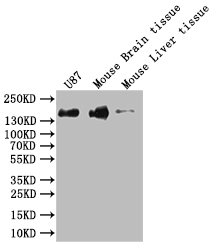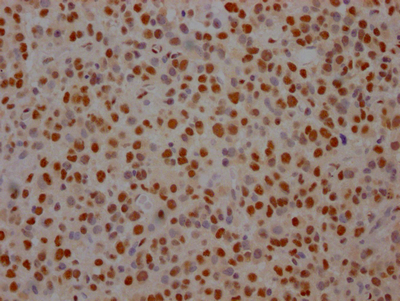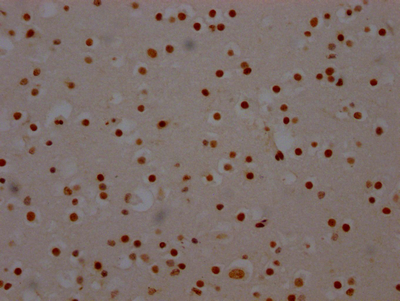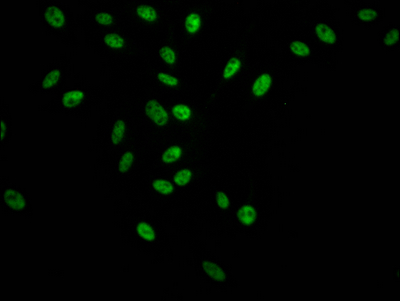The production process of the SF3B1 recombinant monoclonal antibody involves four steps. Firstly, the SF3B1 monoclonal antibody gene is sequenced and then cloned into a plasmid vector. Subsequently, the recombinant vector is introduced into a host cell line, and the SF3B1 recombinant monoclonal antibody is purified from the cell culture supernatant using affinity chromatography. The SF3B1 monoclonal antibody is derived from SF3B1 antibody-producing hybridomas, and during its production, a synthesized peptide derived from human SF3B1 serves as the immunogen. This SF3B1 recombinant monoclonal antibody is recommended for use in detecting human and mouse SF3B1 proteins in ELISA, WB, IHC, and IF applications.
The SF3B1 protein is a component of the spliceosome, a large RNA-protein complex that is responsible for splicing pre-mRNA to generate mature mRNA. As part of the U2 snRNP (small nuclear ribonucleoprotein particle), SF3B1 interacts with pre-mRNA and other splicing factors to catalyze the removal of introns and ligation of exons. Specifically, SF3B1 plays a role in the recognition of the 3' splice site during spliceosome assembly and is involved in the transition from the prespliceosome to the activated spliceosome. Mutations in SF3B1 have been associated with various cancers and have been shown to affect alternative splicing patterns, leading to altered gene expression and oncogenic transformation.









